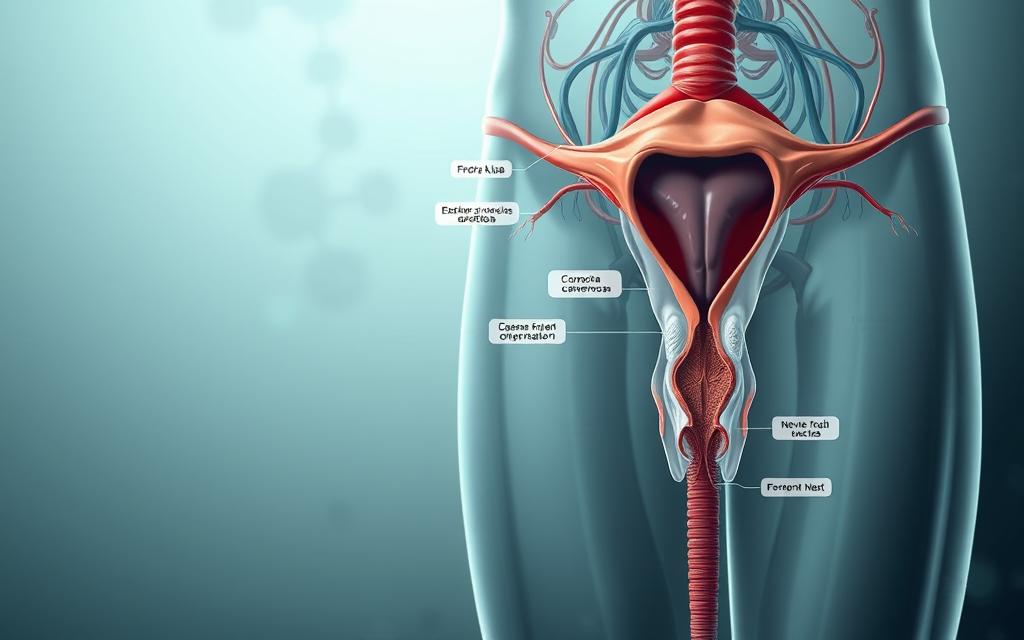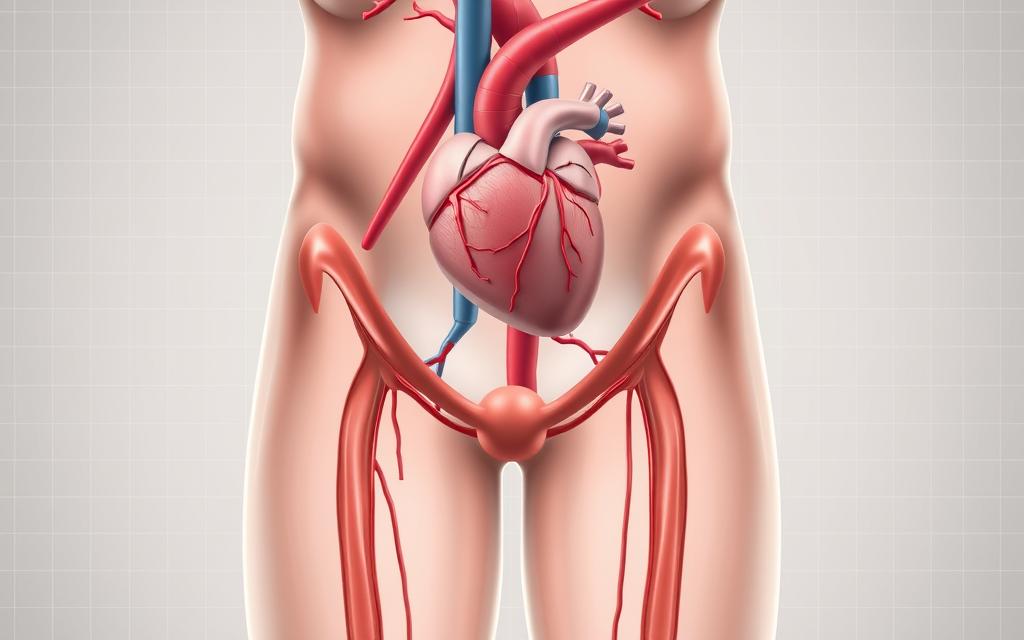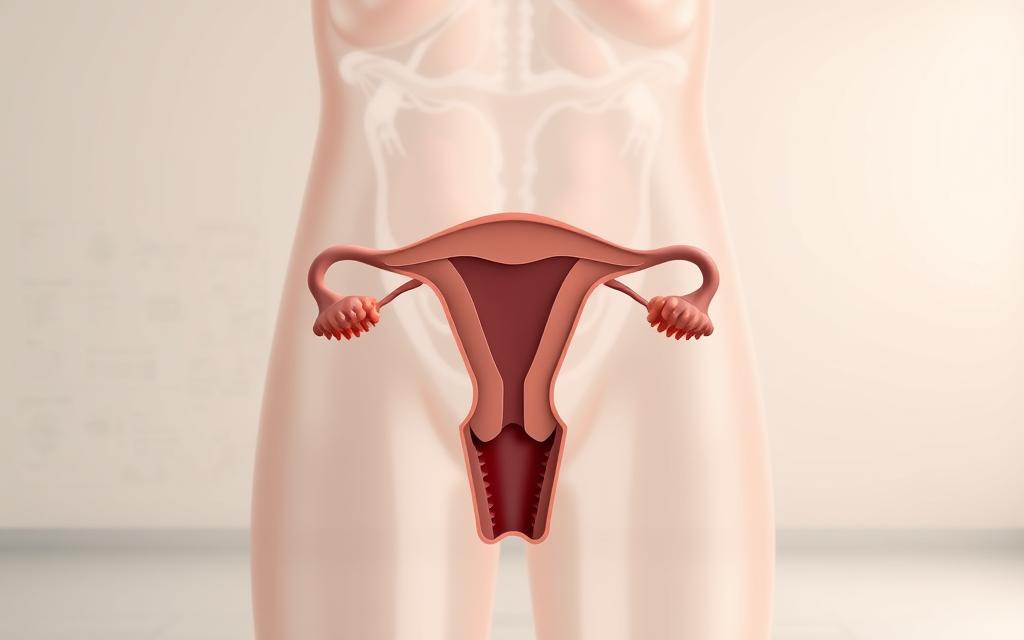Premature Ejaculation or Erectile Dysfunction? Know the Facts
Male sexual health issues can be complex and varied, with premature ejaculation and erectile dysfunction being two common conditions that affect many men.
Understanding the differences between these conditions is crucial for effective treatment and improving overall sexual health. While both conditions can impact a man’s ability to perform sexually, they have distinct causes and symptoms. For instance, premature ejaculation is characterized by ejaculation that always or nearly always occurs prior to or within about 1 minute of vaginal penetration.
By knowing the facts about these conditions, men can take the first step towards seeking appropriate treatment and regaining control over their sexual health.
Understanding Male Sexual Health Issues
Understanding male sexual health issues is crucial for addressing the problems that affect men’s well-being and their intimate relationships. Male sexual dysfunction encompasses a range of conditions that can significantly impact an individual’s quality of life.
Common Sexual Dysfunctions in Men
Male sexual dysfunction includes conditions such as premature ejaculation and erectile dysfunction. These are among the most common sexual health issues men face. Premature ejaculation refers to ejaculation that always or nearly always occurs prior to or within 1 minute of vaginal penetration, while erectile dysfunction is the inability to achieve or maintain an erection sufficient for satisfactory sexual performance.
Some key statistics highlighting the prevalence of these conditions include:
- Premature ejaculation affects approximately 20-30% of men at some point in their lives.
- Erectile dysfunction affects about 40% of men by the age of 40, increasing with age.
Impact on Quality of Life and Relationships
The impact of male sexual dysfunction on quality of life and relationships can be profound. It can lead to emotional distress, anxiety, and relationship strain. The emotional toll can be as significant as the physical aspects, affecting self-esteem and overall well-being.
Some of the ways male sexual dysfunction can affect relationships include:
- Strain on communication between partners.
- Increased stress and anxiety related to sexual performance.
- Potential decrease in intimacy and emotional connection.
What is Premature Ejaculation?
Premature ejaculation, a condition characterized by early ejaculation, is more common than many men realize. It is a sexual dysfunction that can significantly impact a man’s quality of life and relationships.
Clinical Definition and Diagnosis
Premature ejaculation is clinically defined as ejaculation that always or nearly always occurs prior to or within 1-2 minutes of vaginal penetration, or a clinically significant and bothersome reduction in latency, often to about 3 minutes or less. Diagnosis involves a thorough medical history and physical examination to rule out underlying conditions.
Types of Premature Ejaculation
There are two main types: Lifelong Premature Ejaculation, where the condition has been present since the first sexual experiences, and Acquired Premature Ejaculation, which develops later in life, often due to other health issues or psychological factors.
Prevalence and Statistics
Studies suggest that premature ejaculation affects a significant percentage of men. According to various prevalence studies, approximately 20-30% of men experience premature ejaculation at some point in their lives.
| Type of Premature Ejaculation | Description | Prevalence |
|---|---|---|
| Lifelong Premature Ejaculation | Present since first sexual experiences | Estimated 10-15% of men |
| Acquired Premature Ejaculation | Develops later in life | Estimated 10-20% of men |
What is Erectile Dysfunction?
Understanding erectile dysfunction is crucial for addressing male sexual health issues. Erectile dysfunction (ED) refers to the inability to achieve or maintain an erection sufficient for satisfactory sexual performance.
Clinical Definition and Diagnosis
Erectile dysfunction is diagnosed based on a man’s medical history, physical examination, and laboratory tests. A diagnosis is typically made if a man experiences difficulties with erections on at least 75% of occasions over a period of three months.
Types and Severity Levels
There are different types of erectile dysfunction, including psychogenic, organic, and mixed. The severity can range from mild to severe, depending on the frequency and quality of erections. Understanding the type and severity is crucial for determining the appropriate treatment.

Prevalence and Statistics
Prevalence statistics indicate that erectile dysfunction affects a significant portion of the male population worldwide. According to various studies, the prevalence increases with age, affecting approximately 40% of men by the age of 40 and rising to about 70% by the age of 70.
Recognizing the signs and understanding the prevalence can help men seek appropriate medical care and improve their quality of life.
Premature Ejaculation vs Erectile Dysfunction: Key Differences
Understanding the differences between premature ejaculation and erectile dysfunction is crucial for men experiencing sexual health issues. While both conditions affect male sexual performance, they manifest in distinct ways and have different implications for treatment and management.
Symptom Comparison
Premature ejaculation is characterized by ejaculation that always or nearly always occurs prior to or within 1-2 minutes of vaginal penetration, or before the person wishes it. In contrast, erectile dysfunction involves the inability to achieve or maintain an erection sufficient for satisfactory sexual performance. The symptoms of these conditions are distinct, with premature ejaculation focusing on the timing of ejaculation and erectile dysfunction on the ability to maintain an erection.
Diagnostic Criteria
The diagnosis of premature ejaculation is based on a man’s history of ejaculation, including the time taken to ejaculate, the frequency of ejaculation before desired, and the impact on sexual satisfaction. Erectile dysfunction is diagnosed through a comprehensive assessment of erectile function, including medical history, physical examination, and sometimes, additional tests to identify underlying causes.
Long-term Prognosis
The long-term prognosis for both conditions varies. Premature ejaculation can often be managed effectively with behavioral techniques and, in some cases, medication. Erectile dysfunction treatment depends on the underlying cause, ranging from lifestyle changes and oral medications to more invasive interventions. Understanding the specific condition is key to managing it effectively.
Physical Causes of Premature Ejaculation
The physical causes of premature ejaculation are multifaceted and require a comprehensive approach. Various factors can contribute to this condition, affecting men’s sexual health and overall well-being.
Hormonal Imbalances
Hormonal imbalances, particularly thyroid disorders, can contribute to premature ejaculation. Thyroid hormone plays a significant role in regulating sexual function, and abnormalities can lead to sexual dysfunctions. Ensuring thyroid health is crucial in managing premature ejaculation.
Neurological Factors
Neurological factors, including hypersensitivity or nerve damage, can also cause premature ejaculation. Conditions such as diabetes or spinal cord injuries can affect nerve function, leading to ejaculatory disorders. Understanding these neurological aspects is vital for appropriate treatment.
Genetic Predisposition
Genetic predisposition is another significant factor, with some men being more prone to premature ejaculation due to their genetic makeup. Research suggests that genetic factors can influence serotonin levels and receptor function, impacting ejaculatory control. Recognizing the role of genetics can help in developing targeted therapies.
Physical Causes of Erectile Dysfunction
Understanding the physical causes of erectile dysfunction is crucial for effective treatment. Erectile dysfunction can result from a variety of physical factors that affect the body’s ability to achieve and maintain an erection.
Cardiovascular Issues
Cardiovascular diseases, including high blood pressure and atherosclerosis, are significant contributors to erectile dysfunction. These conditions can restrict blood flow to the penis, making it difficult to achieve an erection. Maintaining a healthy cardiovascular system through diet, exercise, and managing conditions like hypertension can help mitigate this risk.

Hormonal Imbalances
Hormonal imbalances, particularly low testosterone levels, can significantly impact erectile function. Testosterone plays a crucial role in libido and erectile health. Conditions such as hypogonadism can lead to decreased testosterone production, contributing to erectile dysfunction.
Medication Side Effects
Certain medications can have side effects that contribute to erectile dysfunction. These include some antidepressants, antipsychotics, and blood pressure medications. If you’re experiencing erectile dysfunction, it’s essential to discuss your medications with your healthcare provider to explore alternative options.
Chronic Health Conditions
Chronic health conditions such as diabetes, obesity, and neurological disorders can also contribute to erectile dysfunction. Managing these conditions through lifestyle changes and medical treatment can help improve erectile health.
When These Conditions Occur Together
When premature ejaculation and erectile dysfunction occur together, it can significantly impact a man’s sexual health and overall well-being. This co-occurrence can create a complex situation that affects not only the individual but also their partner and relationship.
The interplay between these two conditions can be particularly challenging. For instance, the anxiety caused by premature ejaculation can exacerbate erectile dysfunction, creating a vicious cycle that is difficult to break without proper treatment and support.
Understanding the Connection
The connection between premature ejaculation and erectile dysfunction is multifaceted. Psychological factors such as performance anxiety can play a significant role in both conditions. Additionally, underlying physical health issues can contribute to the development of these sexual dysfunctions.
| Condition | Primary Characteristics | Common Causes |
|---|---|---|
| Premature Ejaculation | Ejaculation that always or nearly always occurs prior to or within 1 minute of vaginal penetration. | Anxiety, stress, hormonal imbalance. |
| Erectile Dysfunction | Inability to achieve or maintain an erection sufficient for satisfactory sexual performance. | Cardiovascular disease, diabetes, hormonal imbalance. |
Compound Effects on Sexual Health
The co-occurrence of these conditions can have a compounding effect on sexual health, leading to increased distress, decreased sexual satisfaction, and strain on relationships. Understanding this connection is crucial for developing effective treatment plans that address both conditions simultaneously.
Psychological Factors Contributing to Both Conditions
Understanding the psychological underpinnings of premature ejaculation and erectile dysfunction is crucial for effective management. These conditions are not just physical; they are also deeply intertwined with psychological factors.
Anxiety and Performance Pressure
Men with premature ejaculation or erectile dysfunction often experience heightened anxiety about their sexual performance, which can exacerbate the condition. Some key strategies to manage this include:
- Relaxation techniques
- Mindfulness practices
- Counseling to address performance pressure
Depression and Stress
Depression and stress are other critical psychological factors. Chronic stress can lead to hormonal imbalances that affect sexual function. Some ways to mitigate this include:
- Exercise and physical activity
- Seeking professional help for depression
- Stress management techniques
Relationship Issues and Communication Barriers
Relationship issues and communication barriers play a substantial role. Couples facing these sexual dysfunctions often experience strain due to misunderstandings and unmet expectations. Open communication and counseling can help alleviate these pressures.
Treatment Options for Premature Ejaculation
The treatment of premature ejaculation is not one-size-fits-all; it encompasses a range of strategies including behavioral techniques, medications, and counseling. Men experiencing this condition can explore various options to find what works best for them.
Behavioral Techniques You Can Try at Home
Simple changes in behavior can significantly impact premature ejaculation. Techniques such as the stop-start method and pelvic floor exercises can be practiced at home. These methods help in gaining better control over ejaculation.
- Stop-start method: This involves stopping sexual activity before ejaculation, waiting until the urge to ejaculate passes, and then resuming.
- Pelvic floor exercises: Strengthening the pelvic muscles can improve ejaculatory control.
Medications and Topical Treatments
For some men, medications and topical treatments may be recommended. Selective serotonin reuptake inhibitors (SSRIs) are a type of antidepressant that can help delay ejaculation. Topical anesthetics can also be used to reduce sensitivity.
Counseling and Therapy Approaches
Counseling or therapy can be beneficial, especially when premature ejaculation is linked to psychological factors. Techniques such as cognitive-behavioral therapy (CBT) can help address underlying issues. Couples therapy can also improve communication and intimacy.
By exploring these treatment options, men can find effective solutions to manage premature ejaculation and improve their sexual health.
Treatment Options for Erectile Dysfunction
The approach to treating erectile dysfunction involves a combination of medical and lifestyle interventions. Understanding the available options can help individuals make informed decisions about their care.
Oral Medications: What Works Best
Oral medications are often the first line of treatment for erectile dysfunction. Phosphodiesterase type 5 inhibitors, such as sildenafil (Viagra) and tadalafil (Cialis), are commonly prescribed. These medications work by increasing blood flow to the penis, facilitating an erection in response to sexual stimulation.
It’s essential to consult with a healthcare provider to determine the most suitable oral medication and dosage.
Other Medical Interventions
For men who do not respond to oral medications or require alternative treatments, other options are available. These include:
- Vacuum erection devices
- Penile implants
- Injections or suppositories that stimulate erections
Each of these treatments has its benefits and potential drawbacks, which should be discussed with a healthcare provider.
Lifestyle Changes That Make a Difference
Making certain lifestyle adjustments can significantly impact erectile dysfunction. Key changes include:
| Lifestyle Change | Potential Benefit |
|---|---|
| Regular Exercise | Improves cardiovascular health, enhancing blood flow |
| Healthy Diet | Supports overall vascular health |
| Smoking Cessation | Reduces vascular damage |
| Stress Management | Decreases psychological factors contributing to ED |
By incorporating these changes, individuals can potentially improve their erectile function and overall well-being.
Conclusion: Taking Control of Your Sexual Health
Understanding the differences between premature ejaculation and erectile dysfunction is crucial for sexual health. By recognizing the symptoms and causes of these conditions, individuals can take proactive steps towards seeking appropriate treatment and improving their overall well-being.
Taking control of your sexual health involves addressing both physical and psychological factors. This may include adopting healthier lifestyle habits, exploring various treatment options, and seeking professional help when needed.
By being informed and proactive, individuals can overcome the challenges posed by premature ejaculation and erectile dysfunction, leading to a more fulfilling and satisfying sexual experience. This journey towards better sexual health is a significant step in taking control of one’s life and relationships.
In conclusion, acknowledging and addressing sexual health issues is essential for overall health and relationship satisfaction. By understanding the available treatment options and taking proactive steps, individuals can improve their sexual well-being and enhance their quality of life.
